Will Deterrence Hold in Europe?
At a recent REDS seminar co-hosted by the Center on Democracy, Development and the Rule of Law and The Europe Center, Andrew Michta, Professor of Strategic Studies at the Hamilton School, delivered a sobering assessment of European security in an era of renewed great power conflict. Framed around the question “Will deterrence hold?”, Michta’s talk examined the structural weaknesses of Europe’s post–Cold War security order, the evolving threat environment posed by authoritarian powers, and the limits of both U.S. and European military preparedness.
Michta argued that Europe has spent the past three decades on what he termed a “vacation from history” — a period marked by disarmament, strategic complacency, and the belief that economic integration could substitute for hard security. The post-1990 unification of Germany, the enlargement of the European Union, and the decline of territorial defense planning reinforced the assumption that major war on the continent was no longer plausible. This mindset, he contended, left Europe strategically unprepared for Russia’s gradual re-militarization and revisionism, culminating in the 2022 invasion of Ukraine.
A central theme of the talk was the failure of the European Union to develop a credible, EU-centric security architecture. While EU elites pursued visions of a “United States of Europe,” Michta emphasized that political fragmentation, divergent threat perceptions, and regulatory obstacles have undermined collective defense capacity. Events such as Brexit, the 2015 migration crisis, and internal disagreements over Russia have further eroded cohesion. In Ukraine, these weaknesses have translated into a fragmented and often reactive European response.
Michta placed Europe’s challenges within a broader systemic context, highlighting the emergence of what he described as an “axis of dictatorships” linking Russia, China, Iran, and North Korea across the Eurasian landmass. Russia, he argued, is now fully mobilized for war, while China is expanding its military capabilities at unprecedented speed and scale. These dynamics are producing an “expanding battlefield” stretching from Eastern Europe to the Indo-Pacific, raising the prospect of simultaneous regional conflicts. Referencing warnings by NATO’s Supreme Allied Commander Europe, Michta noted that a two-theater conflict by 2027 can no longer be dismissed as implausible.
The talk also addressed the constraints facing the United States and NATO. Despite unmatched global reach, U.S. forces have been reshaped by two decades of counterterrorism operations, face recruitment shortfalls, and are constrained by an industrial base ill-suited for protracted large-scale combat operations. European NATO members, with a few notable exceptions such as Poland, Finland, and the Baltic states, lack deployable forces and the industrial capacity needed for sustained deterrence.
In conclusion, Michta outlined a more pragmatic path forward centered on what he called NATO’s “Northeast Corridor” — a coalition of states in Northern, Baltic, and Central Europe that share threat perceptions and possess credible military capabilities. With continued U.S. support, particularly in nuclear deterrence, logistics, and long-range fires, this regional core could serve as the alliance’s new center of gravity. Whether deterrence ultimately holds, Michta suggested, will depend on how quickly Europe can translate recognition of risk into concrete military and political action — and on how the war in Ukraine ultimately ends.
Read More
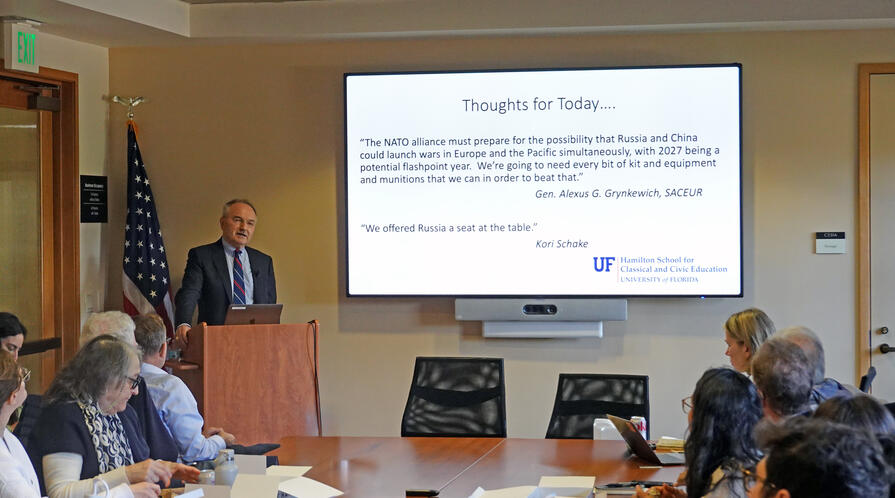
At a REDS seminar co-hosted by CDDRL and TEC, Andrew Michta assesses whether Europe’s security institutions are prepared for renewed great power competition.

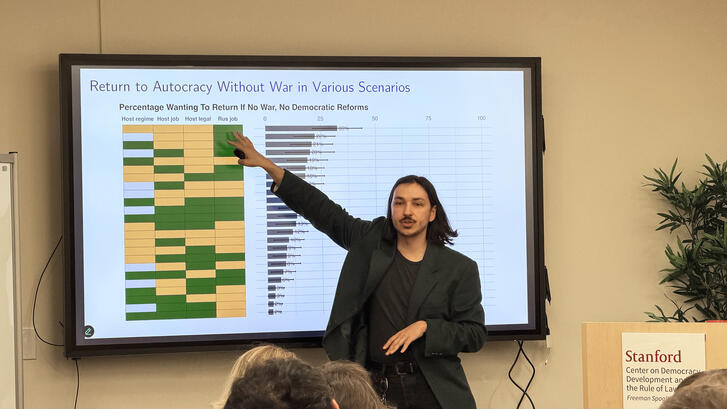
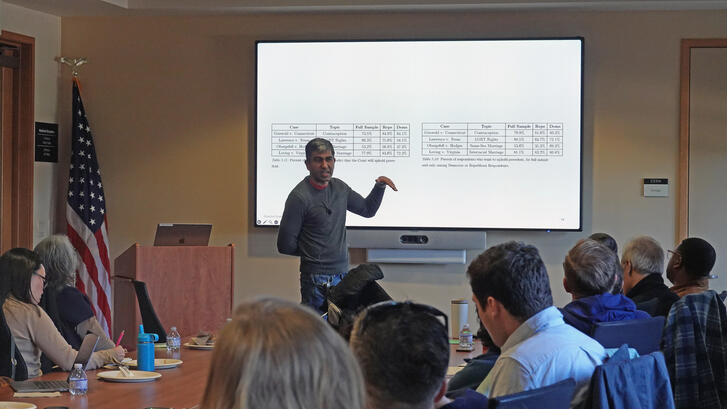
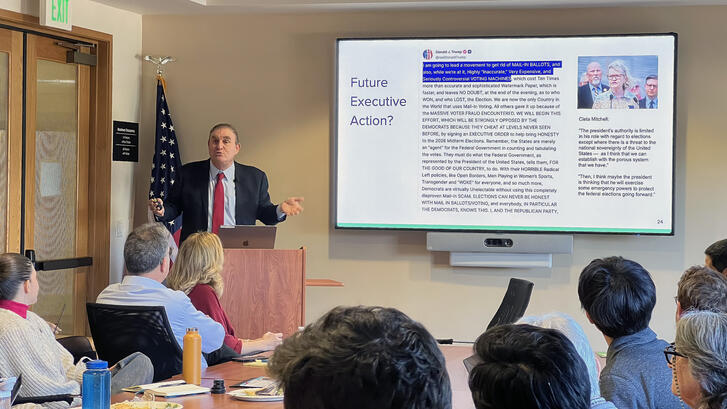
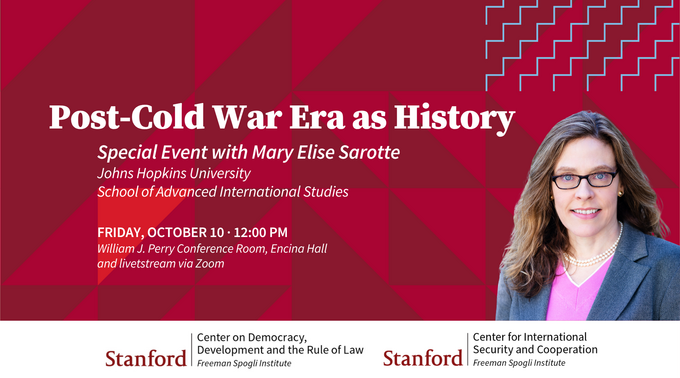






![[Clockwise from upper left]: Clockwise from top left: Oleksandra Ustinova, Oleksandra Matviichuk, Serhiy Leshchenko, and Oleksiy Honcharuk.](https://fsi9-prod.s3.us-west-1.amazonaws.com/s3fs-public/styles/717x490/public/2023-02/ukraine-leaders_1500x1000.jpg?itok=Ldrp3wwX)




![[Clockwise from upper left]: Clockwise from top left: Oleksandra Ustinova, Oleksandra Matviichuk, Serhiy Leshchenko, and Oleksiy Honcharuk.](https://fsi9-prod.s3.us-west-1.amazonaws.com/s3fs-public/styles/1300x1300/public/2023-02/ukraine-leaders_1500x1000.jpg?itok=xD41IOwI)





















![Oleksandr Sereda [left] and Artem Romaniukov [right] during their campaigns for, respectively, city council and mayor in Dnipro, Ukraine in the summer of 2020.](https://fsi9-prod.s3.us-west-1.amazonaws.com/s3fs-public/styles/717x490/public/artem_romaniukov_ukraine_mayor.jpg?itok=AHyGRtgy)




![Oleksandr Sereda [left] and Artem Romaniukov [right] during their campaigns for, respectively, city council and mayor in Dnipro, Ukraine in the summer of 2020.](https://fsi9-prod.s3.us-west-1.amazonaws.com/s3fs-public/styles/1300x1300/public/artem_romaniukov_ukraine_mayor.jpg?itok=pgwenUv9)





